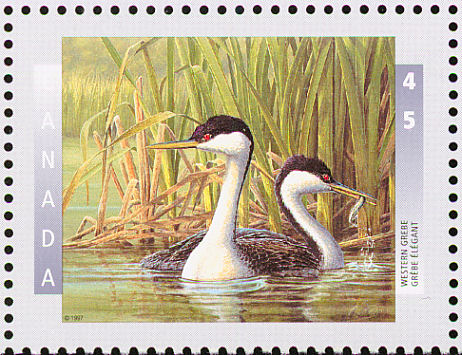In the late summer and early fall, western grebes (Aechmophorus occidentalis) will flock to the marine waters of the West Coast, where they gather by the thousands to dine on a smorgasbord of small fishes. And for years, masses of wintering grebes were a fixture of the Salish Sea. The waters from the Strait of Georgia in Canada south to Puget Sound in the United States hosted roughly 70% of the species’ entire population. Now, though, surveys estimate that only 4% of the population continues to winter here—a decline of 95%. Why did all the grebes leave? Where did they go? And what does their disappearance say about the health of the ecosystem? A group of scientists shared their research at the 2014 Salish Sea Ecosystem Conference. Research presented focused on the role of forage fish, a favorite prey item of many seabirds. Oily and calorie-rich, these fish, such as sandlance, surf smelt and Pacific herring are known for their importance to the food web. Normally an abundant source of sustenance for a wide variety of predators, they have declined significantly over the decades. “Half of all herring stocks in Puget Sound are designated as either depressed or low abundance,” says Dr. Nacho Vilchis, a former postdoctoral researcher with the SeaDoc Society, “and the same is true for British Columbia.”
Source: Encyclopedia of Puget Sound
http://www.eopugetsound.org/magazine/marine-birds

- Login om te reageren
